
Gustav FriedrichSchmoller was the leader of the "younger" German historical school of economics.

Wesleyan University is a private liberal arts university in Middletown, Connecticut, United States. It was founded in 1831 as a men's college under the Methodist Episcopal Church and with the support of prominent residents of Middletown. It is currently a secular institution.

Middletown is a city in Middlesex County, Connecticut, United States. Located along the Connecticut River, in the central part of the state, it is 16 miles south of Hartford. Middletown is the largest city in the Lower Connecticut River Valley Planning Region. In 1650, it was incorporated by English settlers as a town under its original Native American name, Mattabeseck, after the local Wangunk village of the same name. They were among many tribes along the Atlantic coast who spoke Algonquian languages. The colonists renamed the settlement in 1653.
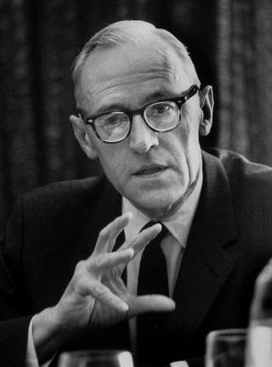
Oskar Morgenstern was a German-born economist. In collaboration with mathematician John von Neumann, he founded the mathematical field of game theory as applied to the social sciences and strategic decision-making.
Gerhard Georg Bernhard Ritter was a German historian who served as a professor of history at the University of Freiburg from 1925 to 1956. He studied under Professor Hermann Oncken. A Lutheran, he first became well known for his 1925 biography of Martin Luther and hagiographic portrayal of Prussia. A member of the German People's Party during the Weimar Republic, he was a lifelong monarchist and remained sympathetic to the political system of the defunct German Empire.
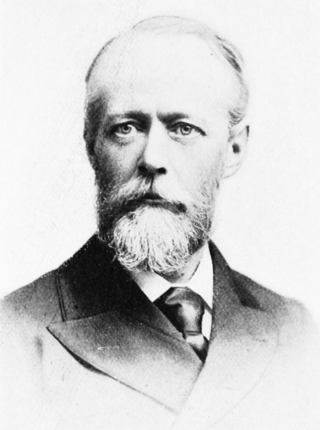
William North Rice (1845–1928) was an American geologist, educator, and Methodist minister and theologian concerned with reconciliation of science and religious faith.

Michael Scott Roth is an American academic and university administrator. He became the 16th president of Wesleyan University in 2007. Formerly, he was the 8th president of the California College of the Arts (2000–2007), associate director of the Getty Research Institute in Los Angeles, and Director of European Studies at Claremont Graduate University. He was also the H.B. Professor of Humanities at Scripps College, where he was the founding director of the Scripps College Humanities Institute.

Thomas Hart Seymour was an American lawyer and Democratic Party politician who served as the 36th governor of Connecticut from 1850 to 1853 and as minister to Russia from 1853 to 1858. He was the leader of the peace settlement in the Democratic Party, and narrowly lost the April 1863 gubernatorial election.

Charles Wilbert "Bill" Snow was an American poet, educator and politician. He served as the 75th Governor of Connecticut. He generally went by the name Wilbert or Bill Snow, or formally as C. Wilbert Snow.

John Monroe Van Vleck was an American mathematician and astronomer. He taught astronomy and mathematics at Wesleyan University in Middletown, Connecticut for more than 50 years (1853-1912), and served as acting university president twice. The Van Vleck Observatory and the crater Van Vleck on the Moon are named after him.
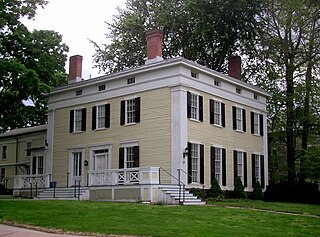
Wesleyan University is a private liberal arts college and "little university" located in Middletown, Connecticut. The now secular and co-ed institution was founded in 1831 as an all-male Methodist college.
Edward Loranus Rice (1871-1960) was a biologist and educator who served as the acting president of Ohio Wesleyan University. He was best known for his 1924 debate with William Jennings Bryan on the topic of biological evolution and serving as a scientific consultant to Clarence Darrow before the 1925 Scopes trial.

Adrienne Lois Kaeppler was an American anthropologist, curator of oceanic ethnology at the National Museum of Natural History at the Smithsonian Institution in Washington, DC. She served as the President of the International Council on Traditional Music between 2005 and 2013. Her research focused on the interrelationships between social structure and the arts, including dance, music, and the visual arts, especially in Tonga and Hawaii. She was considered to be an expert on Tongan dance, and the voyages of the 18th-century explorer James Cook.
David Neal Lorenzen is a British-American historian, scholar of Religious studies, essayist, and emeritus professor of South Asian history at the Centre for Asian and African studies, El Colegio de México in Mexico City.

Herbert Marcuse was a German–American philosopher, social critic, and political theorist, associated with the Frankfurt School of critical theory. Born in Berlin, Marcuse studied at the Humboldt University of Berlin and then at Freiburg, where he received his Ph.D. He was a prominent figure in the Frankfurt-based Institute for Social Research, which later became known as the Frankfurt School. In his written works, he criticized capitalism, modern technology, Soviet Communism, and popular culture, arguing that they represent new forms of social control.
Charles Antoine Micaud was a sociologist, author and American professor. Born in France, he emigrated to the United States in 1936. He was a professor in the universities of Bowdoin College, Virginia and Denver. On 29 March 1941 he married Nancy Waddel.

Christina Crosby was an American scholar and writer, with particular interests in 19th-century British literature and disability studies. She is the author of The Ends of History: Victorians and "The Woman's Question", which considers the place of history and women in 19th-century British literature, and A Body, Undone, a memoir about her life after she was paralyzed in a cycling accident in 2003. She spent her career at Wesleyan University, where she was a professor of English and of feminist, gender, and sexuality studies.
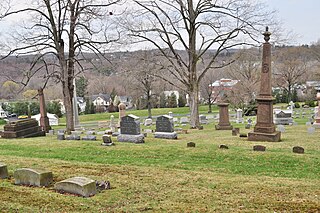
Indian Hill Cemetery is a historic rural cemetery located at 383 Washington Street in Middletown, Connecticut on a hill adjacent to Wesleyan University.
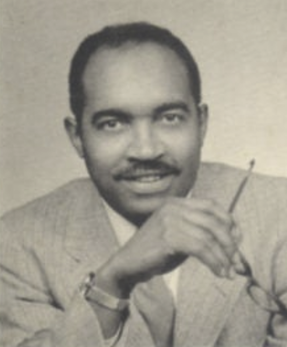
Horatio Theodore Strother was an American historian and educator who wrote an influential 1962 book on the Underground Railroad in Connecticut. His teaching career culminated in a professorship at the University of New Haven from the 1960s.
Liliane Weissberg is an American literary scholar and cultural historian specializing in German-Jewish studies and German and American literature. She is currently the Christopher H. Browne Distinguished Professor in Arts and Sciences and Professor of German and Comparative Literature at the University of Pennsylvania. She received, among others, a Guggenheim Fellowship, the Humboldt Research Award for her research on German-Jewish literature and culture and the Berlin Prize of the American Academy in Berlin, and holds an honorary degree from the University of Graz.















